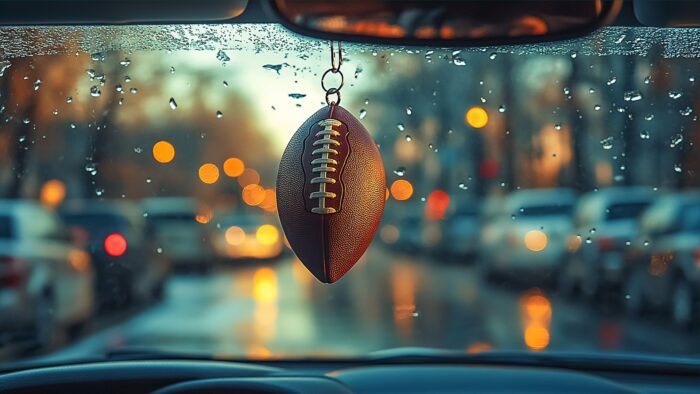A Checklist Of What To Do When You Are Anticipating A Catastrophic Impairment Designation
Author(s): Darcy R. Merkur
June 7, 2024

The current Ontario accident benefit legislation provides for delayed access to the coveted catastrophic impairment designation.
Anyone assisting motor vehicle accident victims in Ontario understands that it is crucial that you help your client obtain a catastrophic impairment designation (CAT) whenever possible and that you obtain it as early as possible. Doing so provides your injured client with access to $1 million of medical, rehabilitation and attendant care benefits as opposed to the $65,000 available without the CAT designation.
Other benefits also become available with a catastrophic impairment designation, like housekeeping and home maintenance benefits of up to $100 per week, unrestricted transportation expenses, the services of a case manager, attendant care benefits of up to $6,000 per month (as opposed to $3,000 per month) and visitor’s expenses for life for reasonable and necessary expenses incurred by visiting immediate family members.
Trauma lawyers helping accident victims must monitor the evolution of the injured party’s medical condition to determine when a CAT claim can best be advanced.
Where there is objective proof of a brain injury, the earliest point at which a catastrophic impairment designation can be pursued is at the six-month anniversary of the accident (unless the injured person spent a full month in a coma post-accident, in which case a CAT claim can be advanced then). Where necessary, a brain injury catastrophic impairment claim can be re-evaluated at the 12-month mark based on an even lower standard that applies at that time.
Other than the most severe circumstances involving a lost limb, paraplegia/tetraplegia or accident-related blindness, most other seriously injured persons must wait until the two-year anniversary of the accident to pursue a CAT designation. At the two-year anniversary of the accident, all of the CAT tests became readily available, including the most relied-on CAT test being the Whole Person Impairment (WPI) test and the second most common one being a psych-based marked/extreme impairment claim. These additional CAT tests can be accessed before the two-year mark but only when the condition is clearly permanent with no real chance of improvement. Accessing these CAT tests before the two-year mark has its complications, as insurers commonly debate whether the injuries may still improve.
As a result of all of the above, it is often a few years before a catastrophic impairment designation is granted by the insurance company following an accident. In the meantime, the seriously injured person, sadly, must go without access to needed funding, and their recovery may suffer as a result. Some best practices should be considered in circumstances where, like most, you are waiting to advance a catastrophic impairment claim down the road and are waiting for the insurer to confirm the CAT designation.
Those include the following checklist items:
ANTICIPATED CAT BEST-PRACTICE ‘CHECKLIST’:
1. Continue to Submit Treatment and Assessment Plans
Despite the likely exhaustion of the non-catastrophic accident benefit limits (of $65,000 for medical, rehabilitation and attendant care benefits), it is prudent to continue to submit treatment and assessment plans even though they will be denied by the accident benefit insurer. Doing so ensures that the accident benefits insurer is financially responsible for paying for any denied services received, plus interest, once you obtain the CAT designation. Further, because the insurer is denying the plan on the basis of the exhaustion of the policy, they typically neglect to challenge whether the plan is reasonable and necessary, thus foreclosing their right to advance such a position later on when you obtain the catastrophic impairment designation.
CHECKLIST ITEM #1 – Continue to submit OCF-18s despite benefit exhaustion when you are expecting to advance a CAT claim;
2. CAT Rates
The Ontario no-fault accident benefit legislation specifies fixed rates for many healthcare professionals. The mandated rates remain pathetically low, making it difficult to find providers from time to time. A higher service rate applies to providers working with CAT claimants. As a result, when you later obtain a catastrophic impairment designation, providers should be encouraged to resubmit their historic invoices going back to the time of the accident for services provided at the higher rates (i.e. claim the difference between their previously approved and paid rates and the higher catastrophic impairment rates that apply once you obtain the CAT designation).
CHECKLIST ITEM #2 – Have providers resubmit historic invoices for services provided at the higher CAT rates.
3. Attendant Care Shortfalls
Once you obtain a CAT designation, the injured person is eligible for up to $6,000 per month in attendant care services (as opposed to $3,000 per month). When submitting Expense Forms (OCF-6s) for attendant care services, where appropriate, those OCF-6s should be consistent with the approved Form 1 attendant care amounts, even if they are well over $3,000 per month. The additional amount paid/received over $3,000 per month would then have to be paid when you obtain the CAT designation, plus interest. Where friends and family are providing the attendant care services because of financial constraints or benefit limits, letters should be sent to the accident benefit insurer along the way explaining the situation. That letter should attach log sheets of services received and OCF6s in relation thereto so that you can later try to advance a claim for historic attendant care benefits within the exception to the definition of “incurred.” It is notable that these attendant care logs for services provided by friends and family will be useful in any lawsuit where such services can be claimed at the higher tort market rates;
CHECKLIST TIP #3 – Submit full attendant care invoices and OCF6s along the way to be in a position to claim additional historic attendant care benefits of up to $6,000 per month, plus interest;
4. Advance Denied Expenses
A catastrophic impairment designation comes with additional elements like housekeeping and home maintenance benefits, case management services and unrestricted transportation. The best practice is to submit full transportation expenses to the accident benefit insurer, even though they will deny the first 50 km of travel in accordance with the legislation until you obtain a CAT designation. Where a case manager has been involved on a “protected” basis (i.e. being paid with the client’s instructions later on), case management plans should continue to be submitted throughout, even though they will be denied.
When it comes to housekeeping and home maintenance benefits, it is a best practice to submit any incurred invoices for housekeeping and home maintenance received so that if and when you obtain the catastrophic impairment designation, you can push the accident benefits insurer to reverse their previous denials and pay the expenses due and owing, plus interest. Where housekeeping and home maintenance services have not been accessed because of funding constraints, it is best practice to log the help that friends and family provide and continue to apprise the accident benefit insurer of the help being provided by the family given the financial constraints. Doing so will put you in a stronger position to try to work within the exception to ‘incurred’ and successfully claim the historic housekeeping and home maintenance expenses (and will be useful in any lawsuit).
CHECKLIST TIP #4 – Submit invoices and expenses along the way, even for items that will only be covered if you obtain a CAT designation (like housekeeping and home maintenance invoices, full transportation expenses and case management plans) and ensure those are addressed when a CAT designation is later obtained.
CONCLUSION
It is best practice to follow all the checklist tips above in order to make sure to hold the accident benefit insurer financially accountable for needed services when you later obtain a CAT designation. The legislation is flawed in that the accident victim must go months and often years before knowing the extent of benefits that will be available. The treatment providers similarly have to work on a tight budget until you obtain a CAT designation, but once you do, you should be able to advance claims for all of the items that should have been available from the outset.
Darcy Merkur is a highly regarded Ontario trauma lawyer helping accident victims such as pedestrians, cyclists and motorists who have sustained catastrophic injuries.
Darcy is the first lawyer in Canada to be qualified as a Certified Brain Injury Specialist by the Brain Injury Association of America. In addition, Darcy has been recognized as a Certified Specialist in Civil Litigation by the Law Society of Ontario, is listed in peer-reviewed publications – Lexpert® and The Best Lawyers™ in Canada, is ranked AV pre-eminent in Martindale-Hubbell ® and is a partner at Thomson Rogers, one of Canada’s Top 10 Personal Injury Law Firms as selected by Canadian Lawyer Magazine.
Darcy can be reached at 416-868-3176 or by email.
Share this





